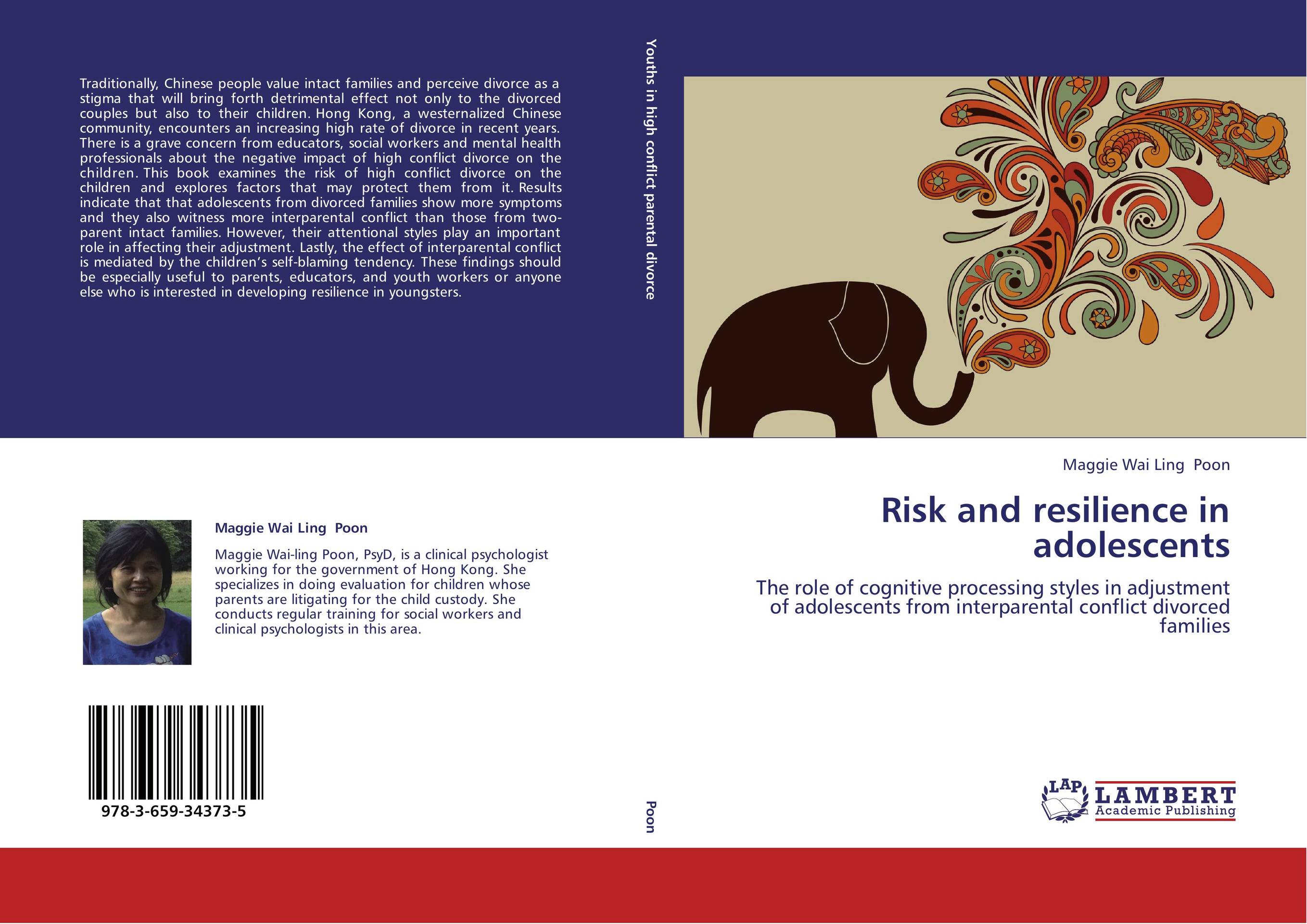| Поиск по каталогу |
|
(строгое соответствие)
|
- Профессиональная
- Научно-популярная
- Художественная
- Публицистика
- Детская
- Искусство
- Хобби, семья, дом
- Спорт
- Путеводители
- Блокноты, тетради, открытки
Risk and resilience in adolescents. The role of cognitive processing styles in adjustment of adolescents from interparental conflict divorced families

В наличии
| Местонахождение: Алматы | Состояние экземпляра: новый |

Бумажная
версия
версия
Автор: Maggie Wai Ling Poon
ISBN: 9783659343735
Год издания: 2013
Формат книги: 60×90/16 (145×215 мм)
Количество страниц: 252
Издательство: LAP LAMBERT Academic Publishing
Цена: 48952 тг
Положить в корзину
| Способы доставки в город Алматы * комплектация (срок до отгрузки) не более 2 рабочих дней |
| Самовывоз из города Алматы (пункты самовывоза партнёра CDEK) |
| Курьерская доставка CDEK из города Москва |
| Доставка Почтой России из города Москва |
Аннотация: Traditionally, Chinese people value intact families and perceive divorce as a stigma that will bring forth detrimental effect not only to the divorced couples but also to their children. Hong Kong, a westernalized Chinese community, encounters an increasing high rate of divorce in recent years. There is a grave concern from educators, social workers and mental health professionals about the negative impact of high conflict divorce on the children. This book examines the risk of high conflict divorce on the children and explores factors that may protect them from it. Results indicate that that adolescents from divorced families show more symptoms and they also witness more interparental conflict than those from two-parent intact families. However, their attentional styles play an important role in affecting their adjustment. Lastly, the effect of interparental conflict is mediated by the children’s self-blaming tendency. These findings should be especially useful to parents, educators, and youth workers or anyone else who is interested in developing resilience in youngsters.
Ключевые слова: adolescents, Resilience, risk, Adjustment, divorce, cognitive processing style, interparental conflict



